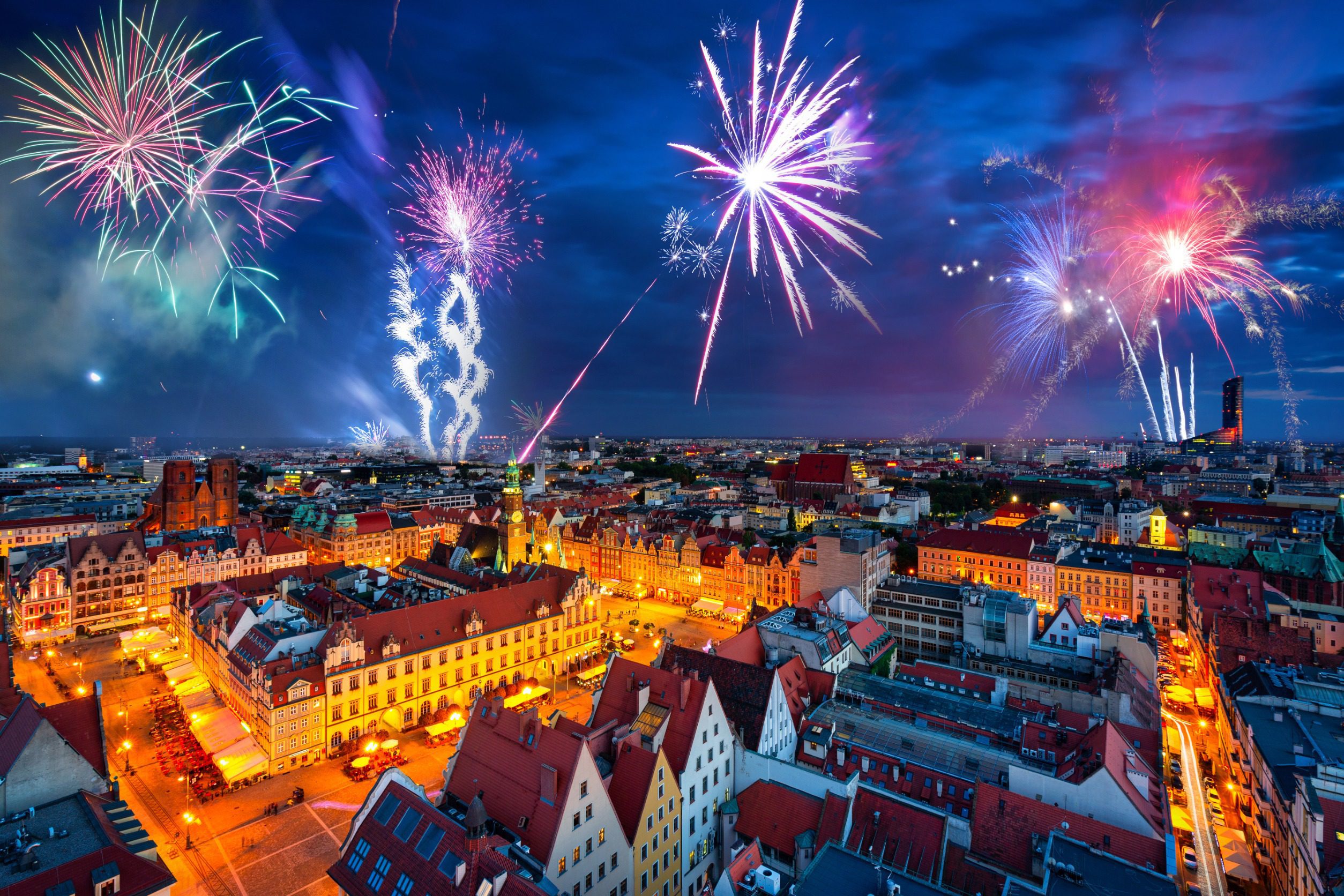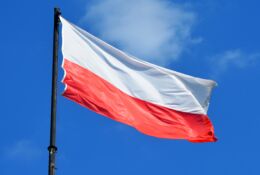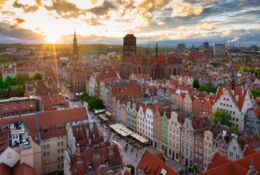Holiday periods in Poland
10.07.2024
It is difficult to understand a country without understanding its cultural heritage. This is one of the reasons why holidays form such an important part of everyday life and also why, to some extent, they dictate business across countries. Poland is no different in this, however, most of Poland’s holidays are associated with the Christian calendar, even the Polish word for seasonal holidays is święta which means holy days.

In this article we will discuss individual holidays in Poland and how they may affect your business activities. Please bear in mind that this is a general guide and most businesses will do their utmost to accommodate your requests, even during holiday periods.
Official State holidays
The list of official public holidays in Poland
As these are official public holidays, offices will be closed and commercial activities either suspended or limited in scope.
Additionally, there are days that haven’t been officially declared as public holidays, however, the festive atmosphere on these days can make arranging appointments difficult:
Sundays are widely accepted as a day off. For that reason and due to a law passed in 2018, most shops and supermarkets are closed on these day.
Due to school holidays, most Poles with children tend to take holidays sometime between the end of June to the end of August, still the most popular months for taking a summer vacation are July and August. Please bear that in mind when arranging your business trips.
NOW FOR SOME DETAILS
New Year’s Day
While most of the celebrations start on the evening of the 31st of December, it’s the New Year’s Day, falling on 1st of January as per Gregorian tradition, that’s officially declared a National holiday, as most people will have had a sleepless night. Expect shopping centres and most of the shops to be closed.
While large New Year’s celebrations in public places are a relatively novel concept to Polish culture, they have become especially popular in larger cities and especially in Poland’s winter capital Zakopane. Visitors can expect open air concerts, the popping of champagne bottles and fireworks into early morning hours, with some local authorities arranging their public festivities alongside the private sector.
The Epiphany
Most Poles recognise this holiday (also known as the “Three Kings’ Day”) by writing in chalk over their front doors, the year plus the initials of the three monarchs that followed the star (so for instance 2023 K+M+B, after Kacper, Melchior and Baltzar – the Polish names for Casper, Melchior and Balthasar). While this holiday has a long-standing tradition in Poland, it is predominantly a religious celebration, with people visiting a church to have the chalk with which they will write blessed. However, in more and more cities there are also processions with the three kings riding into the city to a central point where there is a stable set up, with figures of the Holy Family – sometimes on camels (if the city has a zoo). They are followed by many thousands of people, often wearing symbolic crowns. The whole event ends with carol singing.
Easter
Easter, alongside Christmas, are the most important holidays in Poland, not only for Polish Christians. Please take this into account when making your order for goods or arranging meetings or visits. Traditionally, Polish families prepare for Easter, by preparing special dishes associated with this holiday. On Good Friday, Poles fast in preparation for Easter and the most popular food on this day are herrings served in many different ways. On Easter Saturday a basket of food, which is to be eaten on the special Sunday breakfast, is taken to the church to be blessed. The most important item in the basket are painted eggs called pisanki. They are hand-painted and can be richly ornamented. Śmigus Dyngus, known as Wet Monday, follows Easter Sunday and is a day off work for most businesses. It is traditional to sprinkle water over each other on that day in line with a Slavic tradition reminding us of our Baptism with water. However, especially in country areas the amount of water being thrown around can be much greater.
Labour Day
This holiday, instituted to commemorate the brutal repression of workers in Chicago at the end of the 19th Century, has a relatively short history in Poland, officially dating back to the 1950s when the Polish Communist Government declared it a State holiday. Up until this day it remains a holiday and an important political event for some Parties, with small rallies celebrating the working class taking place in larger cities. Due to its proximity to another holiday, Poland’s Constitution Day, that falls on 3rd of May, Poles tend to take 2nd of May off as well.
Constitution Day
The 3rd of May is a very important holiday for the modern Polish state, as it marks the date of the official proclamation of the Polish Constitution – the second oldest one in the world and the oldest one in Europe. It was acclaimed in 1792, shortly before the final partitinoing of Poland. Alongside the 11th of November, it forms the backbone of Poland’s identity as a State and Nation. For this reason, expect parades, marches, gathering and other political and social activities on that day. Many Poles might be on holiday during these first days of May, due to, the so-called majówka, a period spanning from 1st till 3rd of May, when spring can first be felt in the air after a long gey winter.
Pentecost
Penecost is a significant liturgical event, commemorating the descent of the Holy Spirit upon the Apostles. As this holiday always falls on a Sunday, it is already a day off for most businesses, so its economic impact is fairly limited. Expect regular working hours in the days leading up to and after the holiday.
Corpus Christi
Corpus Christi follows 11 days after Pentecost, falling always on a Thursday. While most restaurants and cafes remain open on that day, supermarkets and other larger shops are not. Visitors to Poland can be surprised by large religious processions taking place on that day. Given the time of the year and the fact that this holiday falls on a Thursday, don’t be surprised by longer absences – many Poles take this opportunity to take the Friday off, to have a long week end. Expect increased traffic and congestion both due to, the aforementioned processions and people going on short vacations.
Assumption of the blessed Mary / Armed Forces Day
This joint religious and State holiday happens to commemorate two important events – the Assumption of Mary, mother of Jesus, and the Armed Forces Day, instated after the victory of the Polish armed forces over the Soviet army in 1920.This victory is often called Cud nad Wisłą – the miracle on the Wisła river. As this victory was a real miracle. This is a Nationwide celebration, with military parades happening across the country, while many Polish Catholics make a pilgrimage to Częstochowa where the Holy Image of Our Lady of Częstochowa is to be found. Shopping centres and supermarkets are shut on the day as are other businesses.
All Saints’ Day
Unlike Halloween, which is becoming a tradition that has gained a foothold with the younger generation in larger cities, All Saints’ Day is a sombre day when nearly all Poles travel to the places where their beloved deceased are buried. Shops remain closed for the day, and most cafes and restaurants operate on different schedules. Heavy traffic is to be expected, especially in areas around cemeteries and main roads. Given the nature of the holiday, it’s recommended that any work-related calls or enquiries be postponed until the next day.
Independence Day
On 11th of November 1918 Poland declared independence after 123 years of foreign oppression and partitioning. This date commemorates the rebirth of the Polish state, and as such, it is celebrated by Poles, as above all we value our freedom and independence. This day is also celebrated on a Governmental level as well as by various political and non-political groups. Patriotic marches are to be expected, especially in larger cities. Expect significant road congestion and limited public service. Most businesses do not work on this day so meetings need rescheduled. Festivities tend to be patriotic in nature but everyone is welcome to partake in this celebration of Poland’s independence.
Christmas Day
This widely celebrated Christian holiday is one of the major festivals in Polish calendar and occupies an important role in both Polish culture and the economy. Almost all businesses remain closed for the whole period of Christmas, with exceptions being few and far between. This also tends to be a period for larger family gatherings, with people often travelling to their hometowns a couple days ahead of Christmas to meet up with their loved ones. Scheduling meetings around this period is inadvisable. Please bear in mind that during the Christmas period most public transport will be operating on a limited basis. Most businesses still operate on Christmas Eve, although their working hours are likely to be shorter.
Should you be visiting Poland around this period, expect to see a lot of festive decorations, hear traditional and Western carols and get a taste of traditional Christmas cuisine.
The Second Day of Christmas
The Second Day of Christmas plays an important part in the Christmas celebrations in Poland. Though traditionally the second Day of Christmas used to be more openly festive and less family centred, in recent years people tend to spend it still in the company of relatives. Similar to the first day of Christmas, very few businesses are open on the 26th of December.
- Everything
- News (6)
-
 Article
ArticleIndependence Day: Polish history and Poland’s economic transformation
On November 11, 1918, Poland regained its independence after 123 years of partitioning
 Article
ArticlePoland – an attractive destination for tourists from abroad
“The Best International Destination on a Budget”
-
 Article
ArticleIndependence Day: Polish history and Poland’s economic transformation
On November 11, 1918, Poland regained its independence after 123 years of partitioning
 Article
ArticlePoland – an attractive destination for tourists from abroad
“The Best International Destination on a Budget”
The Export Promotion Portal uses cookies to make it easier for users to use the website and for statistical purposes. If you do not block these files, you agree to their use and saving in the memory of your computer or other device. Remember that you can change your browser settings to block the storage of cookies. More information can be found in Privacy Policy and Terms and conditions.

